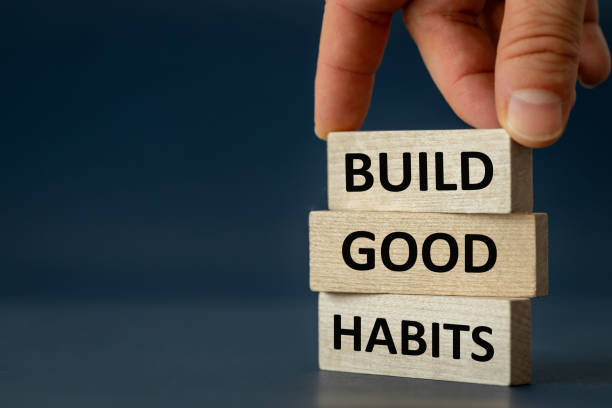No products in the cart.
Fitness Habits
Find Out Exactly How Long it Takes to Bounce Back After a Fitness Break
Do you want to know how long it takes to regain fitness? Whether you’ve taken a vacation from your exercise program or are recovering from an accident, the process of returning to peak physical form differs from person to person. In this article, we’ll look at the elements that determine how long it takes to restore fitness and offer some advice to aid you on your journey.
Understanding Fitness Regains
Regaining fitness is not a one-size-fits-all approach. It is determined by a variety of elements, including your starting point, commitment to consistency and effective training techniques, as well as other personal characteristics such as age, genetics, and overall health. Let’s look deeper into these elements to better understand how long it takes to regain wellness.
Starting Point and Baseline Fitness Level
One of the most important elements influencing how long it takes to regain fitness is your starting place. If you had a specific level of fitness before your sabbatical, you may be able to return it more rapidly. However, if you’ve been idle for a long time, it may take longer to regain your strength and stamina.
When you routinely exercise, your body adapts to the physical demands you put on it. This adaptation can increase cardiovascular endurance, muscular strength, and general fitness. However, when you stray from your habit, your body begins to lose these adaptations, which may take some time to reestablish.

Type of Exercise and Intensity
The type and intensity of exercise also influence the time required to restore fitness. Different exercises focus on different muscle groups and energy systems in the body. For example, focusing on cardio exercises such as jogging or cycling may help you rebuild cardiovascular fitness faster. However, if your major concentration is on strength training, it may take longer to regain muscle strength and endurance.
The intensity of your workouts determines how quickly you restore fitness. Higher intensity workouts require your body to adapt more rapidly, resulting in speedier fitness gains. However, it’s critical to strike a balance that allows for progressive improvement while avoiding overtraining and injuries.
Consistency and Frequency of Workouts
Consistency is essential for restoring fitness. Regular exercise allows the body to reestablish the adaptations it has previously made. Aim for a consistent workout routine that incorporates both cardiovascular and strength training workouts.
The frequency of your workouts influences how soon you regain fitness. Aim for at least three to five workouts per week, including both moderate and high-intensity exercises. This frequency provides enough stimulus to restore your fitness levels without overpowering your body.

Nutrition and Recovery
Proper nutrition and rehabilitation are critical for restoring fitness. When you exercise, your body requires enough nutrition to meet the physical demands placed on it. Make sure your diet has a balance of macronutrients (carbohydrates, proteins, and fats) and micronutrients (vitamins and minerals).
In addition to diet, adequate recovery is essential for recovering fitness. Allow your body adequate time to relax and recover between workouts. This involves getting enough sleep, reducing stress, and using active rehabilitation strategies such as stretching and foam rolling.
Age and Metabolism
Age and metabolism can also affect how soon you restore wellness. Our bodies naturally change as we age, which might have an impact on how fit we are. Metabolism slows down, making it simpler to acquire and more difficult to shed weight. Furthermore, older persons may have lower muscular mass and bone density, affecting overall fitness.
While age can play a role, it’s vital to remember that fitness is possible at any age. Regardless of your age, you can still make great progress toward recovering wellness with the right strategy, which includes proper training techniques and lifestyle changes.
Setting Realistic Expectations
Setting reasonable expectations is critical when it comes to regaining fitness. Remember that everyone’s path is unique, and it may take some time to see substantial results. Avoid comparing yourself to others and instead focus on your own progress.
Remember that recovering fitness is a non-linear process. There may be ups and downs along the route, and progress may differ week to week. Setting reasonable short-term goals that progressively lead to long-term fitness goals will help you celebrate minor triumphs and stay motivated.

Tips for Regaining Fitness Faster
While the time it takes to regain fitness depends on a variety of factors, there are a few strategies that can help you accelerate the process:
- Start slowly: with low-impact workouts, and gradually increase the intensity and length over time. This method allows your body to adjust while avoiding injury or exhaustion.
- Seek Professional Help: Consider working with a trained wellness professional who can design a personalized training regimen based on your individual needs and goals. They can verify that you are employing perfect form and technique, so maximizing your efforts.
- Mix Up Your Workouts: Use a variety of exercises and training methods to make your workouts tough and interesting. This not only reduces boredom but also allows you to target different muscle regions for a more complete workout.
- Stay Consistent: Consistency is essential for regaining fitness. Make exercise a non-negotiable component of your daily routine, and prioritize it like any other significant obligation in your life.
- Listen to Your Body: Pay attention to how your body feels during and after exercise. If anything doesn’t feel right, or you’re in pain or discomfort, alter or discontinue the activity. Pushing through discomfort might lead to additional injuries and setbacks.
- Stay Hydrated: Proper hydration is critical for peak athletic performance. Drink water before, during, and after your workouts to ensure optimal fluid balance.
- Stay Motivated: Discover how to stay motivated throughout your fitness journey. Set new goals, reward yourself for your accomplishments, and surround yourself with a supportive group that shares your enthusiasm for health and fitness.
Conclusion
In conclusion, the time it takes to regain fitness varies depending on a number of circumstances. Understanding and addressing these elements will allow you to develop a realistic plan for regaining fitness and achieving your goals. Remember that this is a personal journey, thus progress may take time. Stay devoted, consistent, and acknowledge each milestone along the road. You have got this!
Trusted Health, Wellness, and Medical advice for your well-being


